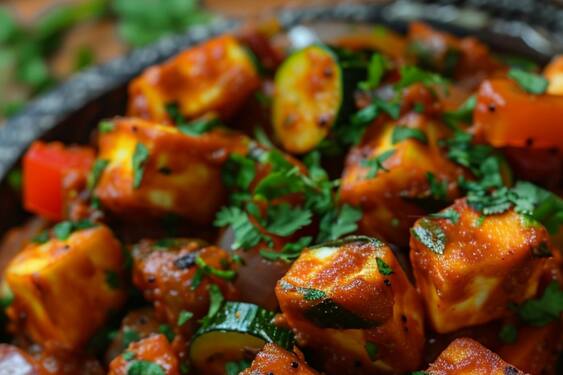7 Shocking Risks Of Overindulging In Paneer Revealed
While paneer is a nutritious food, excessive consumption can lead to several health risks. Its high caloric content can contribute to weight gain if not balanced with physical activity. Additionally, paneer contains saturated fats, which may raise LDL cholesterol levels, increasing the risk of cardiovascular diseases. Overeating can also cause digestive issues, particularly for those who are lactose intolerant, leading to bloating and discomfort.

While paneer is a popular and nutritious food, consuming it in excess can lead to several health risks that are important to consider. Here's a detailed look at the potential dangers of overeating paneer:
1. High Caloric Content:
Paneer is calorie-dense due to its fat content. Regularly consuming large amounts can lead to an increased caloric intake, which, if not balanced with physical activity, can contribute to weight gain. This is particularly concerning for individuals trying to manage their weight or those with sedentary lifestyles.
2. Saturated Fat and Cholesterol Levels:
Paneer contains saturated fats, which, when consumed in excess, can raise LDL (bad) cholesterol levels in the body. Elevated cholesterol can increase the risk of cardiovascular diseases, such as heart attacks and strokes. For those already at risk of heart-related issues, moderation is especially crucial.
3. Digestive Issues:
Overeating paneer may lead to digestive discomfort for some individuals, particularly those who are lactose intolerant. Symptoms can include bloating, gas, and constipation. Even for those who tolerate lactose well, too much paneer can disrupt normal digestion due to its rich and heavy nature.
4. Calcium Overload:
Paneer is a good source of calcium, essential for bone health. However, excessive calcium intake can lead to hypercalcemia, a condition characterized by elevated calcium levels in the blood. This can result in kidney stones, nausea, and abdominal pain. Those who are prone to kidney stones should be particularly cautious about their calcium intake.
5. Nutritional Imbalance:
Relying heavily on paneer can lead to a lack of dietary variety, which is vital for overall health. A diet overly focused on paneer may mean missing out on other important food groups, leading to potential deficiencies in essential nutrients such as vitamins, minerals, and fiber. This can affect overall health and well-being.
6. Potential for Weight Gain:
Due to its high-fat content, eating too much paneer can contribute to an increase in body fat over time, especially if it replaces healthier, lower-calorie foods in the diet. Weight gain can lead to further health complications, including metabolic syndrome and type 2 diabetes.
7. Increased Sodium Intake:
If paneer is processed or prepared with added salt, excessive consumption can lead to high sodium intake. This can contribute to hypertension (high blood pressure) and increase the risk of heart disease.
